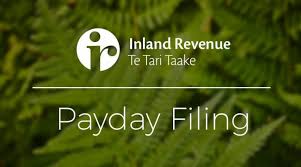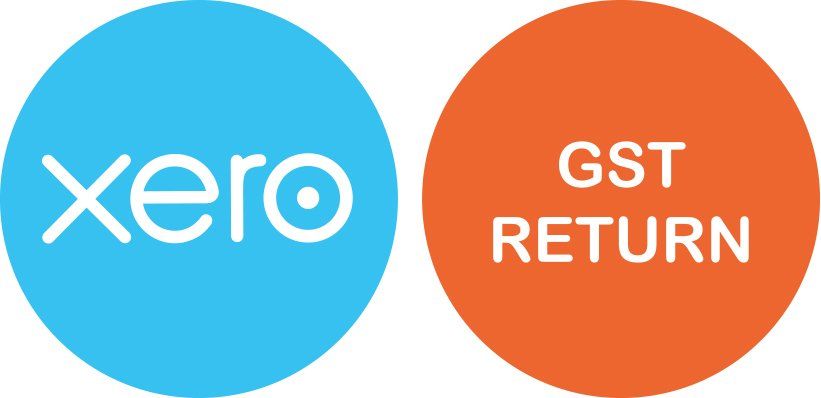articles
IRD Pay Day Filing
- By balancedinvercargill@gmail.com
- •
- 26 Feb, 2019

Payday filing is here for all employers
Time is running out to begin payday filing before 1 April 2019. Remember, the law has changed so you must change to payday filing by 1 April 2019. Some payroll software companies are not yet ready for payday filing, so we suggest you check before launching ahead.
Please be aware IRD are phoning all employers to check they are ready, we have had a couple of calls from clients to check in whether this is a scam – it isn’t.
IR-file will be discontinued
The existing ir-File service in
myIR will be discontinued on 11 March 2019.
If you’re still filing monthly schedules you must use the ‘payroll returns’
account in myIR to file your EMS and employer deductions.
As above if your software
provider still isn’t ready, we suggest you ir-File your February EMS BEFORE
11 March.
The payroll returns account will automatically show in your myIR account from
28 February 2019.
Changes to myIR in April - some services will be unavailable
A lot of IRD services will be down during April, to allow them to implement the changes – we understand this is from 17 to 26 April. This includes secure online services and their call centre. Note a lot of this time will be during the Easter/ANZAC break.

Question
Tony entered into a sale and purchase agreement for a residential property on 15 November 2021. He became the registered owner of the property on 15 December 2021. The residential property is not new build land.
Tony purchased this property for long-term investment purposes and rented the
property out since settlement date.
In May 2024, Tony decided to sell the property due to the rising interest rates
over the years. On 15 June 2024, Tony entered into an unconditional
sale and purchase agreement with a purchaser, with the settlement date set as
15 July 2024.
Will the sale of the residential property be subject to the 10-year bright-line
test or the new 2-year bright-line test?
Answer
The 10-year bright-line test applies to residential land acquired on or after 27 March 2021 and disposed of within 10 years of the bright-line acquisition date (former s CB 6A(1)).
The new 2-year bright-line test applies for disposals of land where the
bright-line end date is on or after 1 July 2024. A tax liability will arise
under the 2-year bright-line test where the person’s bright-line end date is
within 2 years of their bright-line start date (s CB 6A(1)).
Exceptions such as the main home exclusion may apply.
For the purposes of the 2-year bright-line test, the bright-line start date for
a standard purchase of land is the date that the title to the land is
registered for the purchaser of the property. The bright-line end date for a
standard land transaction is generally the date that a person enters into an
agreement for the sale of the property.
For Tony, the bright-line start date is 15 December 2021 which is the date the
land transfer was registered with Land Information New Zealand. Tony’s bright-line
end date is 15 June 2024, being the date that he entered into an agreement to
dispose of the property.
In this case, despite the settlement date of 15 July 2024, the 10-year
bright-line test applies to Tony’s disposal as the bright-line end date of 15
June 2024 is before 1 July 2024. The disposal of the land will be
subject to tax under the 10-year bright-line test as Tony has disposed of the
land within 10 years of the bright-line acquisition date, being
15 December 2021.
For completeness, Tony hasn’t used this property as his main home and therefore
the main home exclusion doesn’t apply.
References
Income Tax Act 2007, s CB 6A.

A new tax bill was introduced to Parliament in December 2018 setting out new rules for losses incurred in owning a rental property. The Bill has not passed into legislation at this time, however, the legislation is to come into effect from 1 April 2019.
Background:
Previously, if you owned a rental property and it made a loss, the loss could be offset against your other income and often you would get a refund of tax paid on other income. The most common example is where you earned a PAYE salary, and paid tax (PAYE) on that. At the end of the tax year, everything was included in your tax return, and the loss from the rental property reduced your income, meaning you got a refund of some of the PAYE paid. Happy Days.
Over the past 10 years there have been numerous changes which have been targeted at rental investors:
- No longer able to depreciate buildings
- Harsher rules on depreciation of building fit-outs
- LAQCs eliminated (Loss companies which could offset losses)
- Brightline (2 years) (effectively Capital Gains Tax if you sold property within 2 years)
- Brightline (5 years) (ditto but now you have to hold it for 5 years)
- Ring Fencing Losses (as per below)
- Possible Capital Gains Tax in Future
New Rules:
The current tax bill proposes to change the loss offset. The proposal is that any loss incurred from the rental property will NOT be able to be offset against other income, instead that loss will be carried forward or “Ring Fenced” to future years, and can only be offset against future rental profits.
The new rules propose that the March 2019 year will be the last year where you can offset the losses against your other income.
Our Tax Consultants advise there is a 99.9% chance these new rules will come into play from 1 April, despite legislation not yet being passed.
What Can You Do?
Not much! Although you have just over a month to bring forward any expenditure that you may have been considering on your rental investment – ie. Repairs and maintenance/purchase of minor assets (under $500) etc so that these can be claimed in the March 2019 year.
We are happy to discuss this new development with you if you have any queries in relation to how it will work. For some of you (where your property is owned in a Trust or a Normal Company) things won’t change drastically anyway, as you couldn’t offset the loss anyway.

Home Used as Office Expenses
General Rule
- Where a self-employed taxpayer uses
his or her home partly to further the conduct of a business, he or she is
entitled to a partial deduction for the outgoings which relate to the use of
the home for the work related activities. These include:
- Heating
- Lighting
- Rates
- Insurance
- Mortgage interest/rent
- House and contents insurance
- Repairs and maintenance
- Telephone rental
The portion of outgoings deductible is based on the area used for the business, expressed as a percentage of the total area of the home:
It is not absolutely necessary to set aside a specific room for business purposes, nor is it necessary for your home to be physically changed to suit the business. In cases where a separate room is not set aside, it may be appropriate to apportion the outgoings based on criteria such as the amount of time spent on income-earning activities as home as well as the area used. Examples of areas likely to be used for business purposes include:
- An office or office area
- A storeroom or storage area
- A workshop
- A garage or part of a garage which is used to house
a business vehicle
Our Recommendation
Do the maths, and think laterally. Most people who are self-employed find it is impossible to completely separate business life from home life. Keep written workings of your calculations, and be sure to keep records of your outgoings in a safe place.

At Balanced Accountancy, we engage the specialist service of one of New Zealand’s most reputable accounting firms for taxation advice. Polson Higgs offer practical advice to maximise savings and minimise tax.
Polson Higgs has a long-standing relationship with our firm, providing specialist taxation advice when required. This enables us to assist those clients who require this service, without a large overhead being built into our fees. It is a user-pays service.
Julie previously worked for Polson Higgs (formerly Price Waterhouse) in Dunedin and has maintained connections with key members of the Polson Higgs team.
Find out more about Polson Higgs by visiting:


It was a difficult process to witness how much devastation that a snow dump could cause. The roof of the building had completely caved in, and in places, damaged thousands of dollars’ worth of stock.
When we think about it, we were lucky, firstly that no-one was hurt in the disaster. We were fortunate to be able to temporarily relocate to a smaller shop in Leven Street until our rebuild was complete.
We were also lucky too, that Julie from Balanced Accountancy was on board to assist. We all quickly became Insurance Loss Experts. We would get together and look at the figures from all angles. Initially we paid consultants who specialised in this type of work (at Julie’s recommendation) to advise us on the process and do some initial work for us. However, it became apparent to us that Julie was more than capable of taking this on.
Julie worked closely with our Insurance assessors. When a business literally crashes in, there is a lot of debate/arguments to be had in establishing the value of the loss, this can be quite a subjective process depending on what side of the insurance equation you are on. Julie was able to maximise our insurance claim and have several healthy debates with the assessors, backing her arguments with facts and figures. As we still joke with Julie, Julie speaks ‘accounting-ese’ – our insurance assessor spoke in this language also. Julie was able to deal with the assessors in their unique language and then relay the information to us in plain English. This helped us immensely.
Within 9 months we were back in our original space. The work did continue for Julie - as part of the claim also covered the time back in the new premises until we got completely back on our feet. We are grateful that Julie was able to dedicate a lot of time to preparing our loss claim. She slotted into the business and worked with us on all aspects of the accounts to get the best result for us.
Julie has been our accountant since the inception of the company. She has been with us when we moved from Spey Street, to our new building in Yarrow Street and has seen our business grow, and she continues to provide regular support to our business.
Quite simply, we don’t believe we would be here if it wasn’t for Julie.
DEAN & SHELLEY TODD, WRENS




